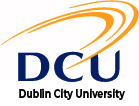BSc in Chemical and Pharmaceutical Sciences
Key Points
One of the core sciences, chemistry has a wide range of applications that affect our daily lives. Chemists design and develop new drugs, pharmaceuticals and materials, and design cleaner and more efficient industrial processes to produce them.
DCU’s Chemical and Pharmaceutical Sciences course cultivates your knowledge and skills in chemistry through applied methods. Laboratory work plays a vital role in developing your understanding of research and industry. The opportunity to apply the basic principles of chemistry will equip you with a variety of problem-solving skills to serve in the professional world.
Program description
Working in the laboratory plays a vital role in your learning, and because our laboratory facilities are among the most up-to-date, you will get the most practical experience possible.
The first year of this course is common with other DCU science courses.
In the second year, conventional chemistry lectures and labs run in parallel with relevant topics in physics, mathematics, computing, and biochemistry.
An integral part of the third year is INTRA, which ensures that you will gain first-hand experience in the applications of chemistry during a period of industrial placement.
The final year of the course focuses on your knowledge and development of more advanced topics. An important element in this last year is your individual research project, which consists of a bibliographic survey on a particular topic, followed by laboratory research work in your area of general interest.
Career options
Career areas
- Education
- Fine Chemical Industries
- Food and drinks
- Materials industries
- Pharmaceuticals
- Plastic
- Veterinary Industries
Your opportunities are vast both at home and abroad. Obviously, a lot will depend on your specializations, but you can expect to fill positions as a process chemist, development chemist, analytical chemist, and research chemist / scientist in various sectors such as the pharmaceutical, food and beverage, brewing and fine chemical industries. .
This course is also suitable for those who ultimately wish to pursue a career in teaching as it is recognized by the Teaching Council for teaching chemistry (see www.teachingcouncil. ie for more details).
Graduate opportunities are also available.
Program structure
Admission requirements
- As a general requirement, a Bachelor’s Degree / Baccalaureate Diploma / General Baccalaureate / Professional Degree from a recognized university with, minimum, is required a subject in mathematics.
- For international candidates, the foreign equivalent is required. In addition, an officially translated degree will be required.
- IELTS 6.5, with no less than 6.0 in any component (or its internationally recognized equivalent).
Learn more about our educational offer
Request your quote
An advisor will contact you by phone and email within the following hours

